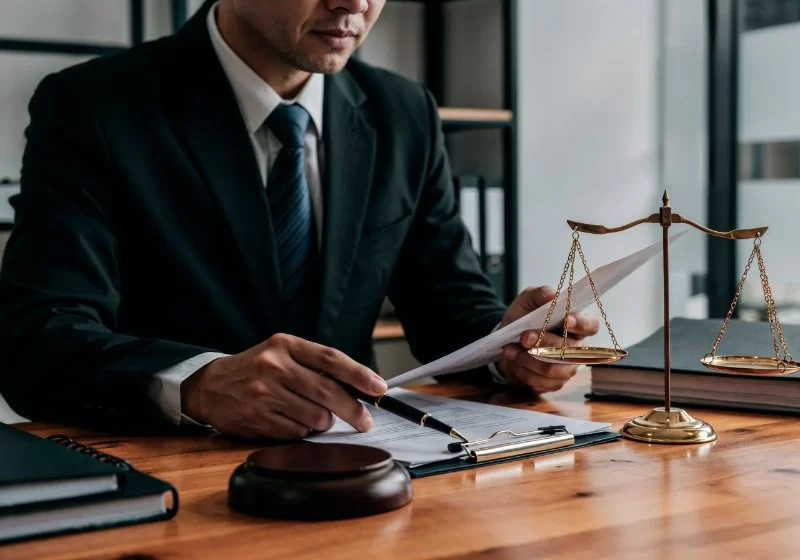How to Get a DUI Charge Reduced or Dismissed – Legal Strategies That Work
Facing a DUI charge can be overwhelming, but it’s important to remember that an arrest doesn’t automatically mean a conviction. Understanding how to get a DUI charge reduced or dismissed can make a major difference in your future, finances, and freedom. With the right legal guidance, evidence review, and negotiation strategies, many drivers find ways to lessen or even eliminate their charges altogether. At Fred Miller Lawyer, we help clients navigate this process with confidence and clarity, turning what feels like a hopeless situation into a manageable one.
1. Understanding the DUI Process and What’s at Stake
1.1 The Serious Nature of DUI Charges
A DUI (Driving Under the Influence) conviction carries heavy penalties, including license suspension, fines, increased insurance rates, and possible jail time. Beyond the legal consequences, it can also impact employment and personal reputation. However, not every DUI case is airtight. Police errors, faulty testing, or procedural mistakes can all create openings for a skilled attorney to challenge the prosecution’s evidence.
1.2 The Importance of Acting Quickly
Time is critical after a DUI arrest. Deadlines for requesting hearings or submitting documentation can pass quickly, which may limit your defense options. Contacting an experienced DUI attorney as soon as possible ensures that your rights are protected and that your defense strategy starts immediately. Early action can be the difference between a conviction and a reduced or dismissed charge.
2. Common Strategies to Reduce or Dismiss a DUI Charge
2.1 Challenging the Traffic Stop
One of the first things a defense attorney will examine is the reason for the traffic stop. Law enforcement must have probable cause — such as erratic driving or a traffic violation — before pulling a driver over. If the stop was unjustified, all evidence gathered afterward (including breath tests and field sobriety results) could be ruled inadmissible, leading to dismissal of the case.
2.2 Questioning Field Sobriety Tests
Field sobriety tests are often used as evidence of impairment, but they are notoriously unreliable. Factors like fatigue, weather, uneven surfaces, or medical conditions can affect performance. A skilled attorney can challenge the validity of these tests, arguing that they do not accurately reflect intoxication levels.
2.3 Examining Breathalyzer or Blood Test Accuracy
Breathalyzer and blood test results are critical in most DUI cases — but they’re not infallible. Devices must be properly calibrated and maintained, and officers must follow strict testing protocols. Any deviation from these procedures can lead to inaccurate results. Attorneys frequently use expert witnesses to question the reliability of test equipment or lab handling, potentially leading to reduced or dismissed charges.
3. Negotiating a Plea Bargain or Charge Reduction
3.1 When Reduction Is Possible
In some cases, prosecutors may agree to reduce a DUI charge to a lesser offense, such as “wet reckless” (reckless driving involving alcohol) or standard reckless driving. This typically results in fewer penalties, lower fines, and a shorter license suspension. Reduction is more likely if this is a first-time offense, your blood alcohol concentration (BAC) was close to the legal limit, or there were no injuries or accidents involved.
3.2 The Role of Your DUI Lawyer in Negotiation
An experienced DUI attorney like those at Fred Miller Lawyer can assess your case, identify weaknesses in the prosecution’s evidence, and negotiate for a plea deal that minimizes consequences. Lawyers often work directly with prosecutors to present mitigating circumstances — such as clean driving records, completion of alcohol education programs, or community service — to improve your case’s outcome.
4. Building a Strong Defense in Court
4.1 Reviewing All Evidence for Errors
A thorough defense begins with a detailed review of all case materials: arrest reports, dashcam footage, breathalyzer logs, and witness statements. Even a small procedural error can create reasonable doubt in court. A good defense attorney knows how to find inconsistencies that can lead to a case dismissal or favorable verdict.
4.2 Presenting Alternative Explanations
Not every sign of impairment means intoxication. Medical conditions like diabetes, allergies, or even certain diets can affect breath test readings. Similarly, nervousness or fatigue can mimic intoxication symptoms. Presenting these facts in court helps humanize the defendant and challenges the prosecution’s narrative of guilt.
4.3 Suppressing Illegally Obtained Evidence
If law enforcement violated your constitutional rights — for instance, by performing an unlawful search or arrest — any resulting evidence can be excluded from trial. This strategy is one of the most effective ways to weaken the state’s case and push for a dismissal.
5. Real-World Examples of Successful DUI Reductions
5.1 First-Time Offender with Faulty Equipment
In one real case, a driver’s DUI charge was dismissed after their attorney proved that the breathalyzer used during arrest had not been properly calibrated. The court ruled the results inadmissible, leading to a complete dismissal. This outcome illustrates why technical accuracy and maintenance records are vital in every case.
5.2 Negotiation Leads to “Wet Reckless” Charge
Another client, charged with DUI after a routine traffic stop, had a blood alcohol level just above the legal limit. Their attorney negotiated a plea deal that reduced the charge to “wet reckless,” sparing the client from license suspension and major fines. Strategic negotiation often provides the most practical path to a better result.
6. The Value of Professional Legal Representation
6.1 Why You Shouldn’t Go It Alone
Attempting to navigate a DUI case without professional help is risky. The legal system is complex, and prosecutors handle these cases daily. Without an experienced defense attorney, it’s easy to overlook key defenses or procedural mistakes that could lead to dismissal. The right legal guidance ensures every possible angle is explored on your behalf.
6.2 Working with Fred Miller Lawyer
At Fred Miller Lawyer, clients receive individualized attention and strategic defense planning. Whether negotiating with prosecutors or fighting for dismissal in court, our approach combines legal expertise with empathy — because we understand what’s at stake for your life and livelihood. Every case is unique, and we tailor our defense to achieve the best possible outcome for you.
7. Moving Forward After a DUI Case
7.1 Rebuilding Your Record and Confidence
Even if a DUI charge is reduced or dismissed, recovery doesn’t end there. Attending alcohol education programs, maintaining a clean driving record, and avoiding future incidents all help rebuild credibility and restore normalcy. Showing commitment to personal growth can also influence how judges and employers view you moving forward.
7.2 Taking Control of Your Future
Understanding how to get a DUI charge reduced or dismissed empowers you to take control of a difficult situation. The process requires patience, preparation, and professional support, but many people successfully move past DUI charges with the right defense strategy. Whether through dismissal, reduction, or acquittal, it’s possible to turn this challenge into a chance for a fresh start — and trusted professionals like Fred Miller Lawyer can help guide you every step of the way.


 steven barsamian attorney
steven barsamian attorney yaniv and associates reviews
yaniv and associates reviews 209 delburg street davidson nc
209 delburg street davidson nc christine koehler attorney
christine koehler attorney grace legal group
grace legal group jeff anderson and associates reviews
jeff anderson and associates reviews